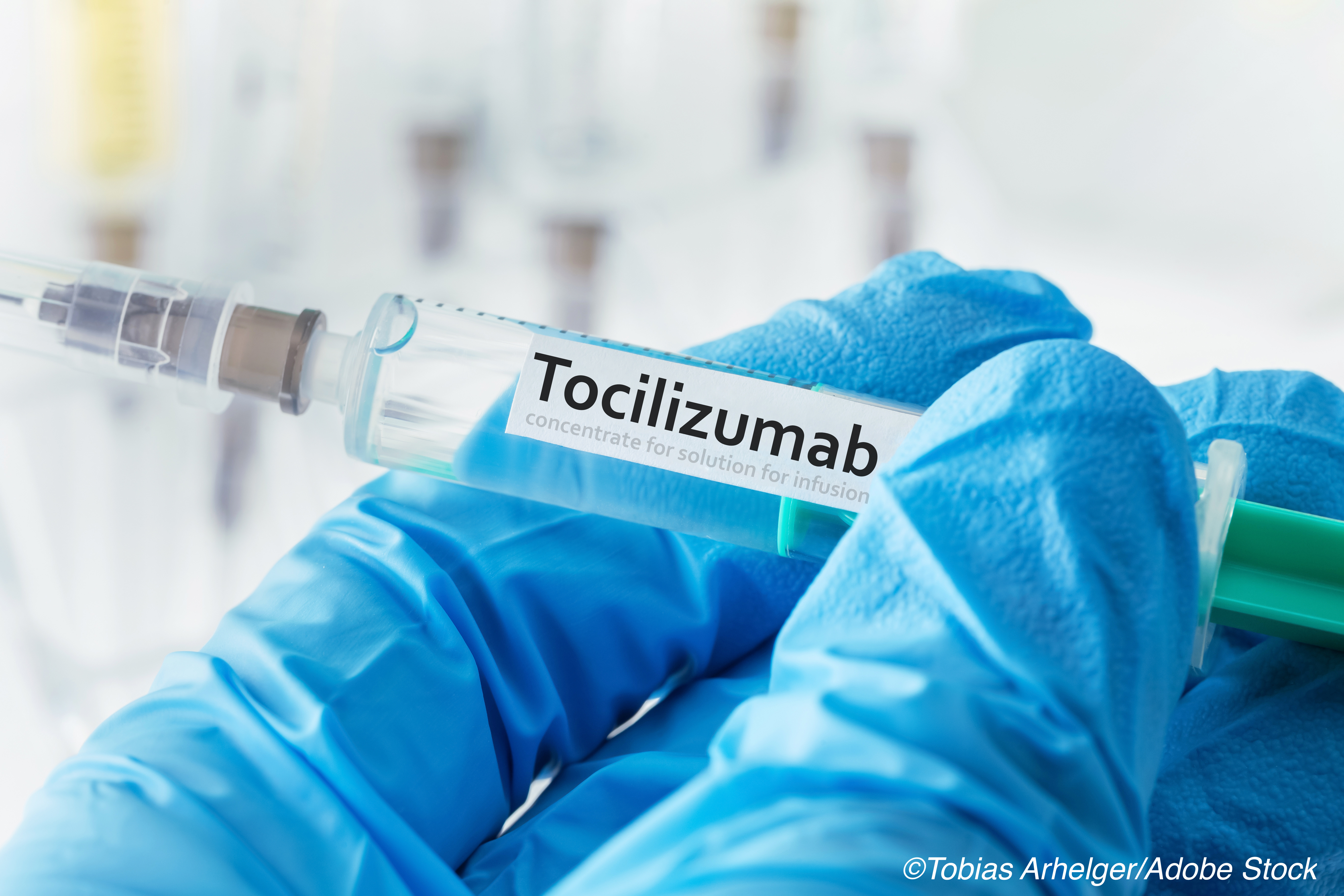The FDA issued an emergency use authorization for the interleukin-6 (IL-6) inhibitor tocilizumab (Actemra) to treat patients ages 2 years and older who have been hospitalized with Covid-19, are receiving systemic corticosteroids, and need supplemental oxygen, non-invasive or invasive mechanical ventilation, or extracorporeal membrane oxygenation (ECMO).
According to the FDA, adding tocilizumab—a drug administered via intravenous infusion that was previously approved to treat rheumatoid arthritis, giant cell arteritis, polyarticular juvenile idiopathic arthritis, and other inflammatory diseases—to routine Covid-19 treatment among hospitalized patients reduced the risk of death within 28 days of follow-up, decreased time spent in the hospital, and reduced the risk for patients to be placed on ventilators. The EUA does not authorize tocilizumab for outpatient use.
This EUA was based on findings from four clinical trials: RECOVERY, EMPACTA, COVACTA, and REMDACTA, with the most important evidence stemming from the RECOVERY and EMPACTA trials:
- In the randomized, controlled, open-label, platform RECOVERY trial, “4,116 hospitalized patients with severe Covid-19 pneumonia were randomized to receive either Actemra in addition to usual care (2,022 patients) or usual care alone (2,094 patients). The primary endpoint evaluated death through 28 days of follow-up, and the results of the primary analysis were statistically significant. The probabilities of death by day 28 were estimated to be 30.7% for patients receiving Actemra and 34.9% for patients receiving usual care alone. The median time to hospital discharge was 19 days for patients receiving Actemra and more than 28 days for patients receiving usual care alone.”
- In the EMPACTA trial, researchers randomized 389 hospitalized patients with Covid-19 pneumonia to either tocilizumab (249 patients) or placebo (128 patients); the primary endpoint was mechanical ventilation or death through 28 days’ follow-up. For patients who received tocilizumab, “there was an observed reduction in progression to mechanical ventilation or death compared to patients who received placebo, with the primary analysis results being statistically significant. The proportion of patients who required mechanical ventilation or died by day 28 was estimated to be 12.0% for patients receiving Actemra and 19.3% for patients receiving placebo.”
- The COVACTA trial randmomized 452 patients hospitalized with severe Covid-19 pneumonia to either tocilizumab (294 patients) or placebo (144 patients) with a primary endpoint of clinical status through 28 days’ follow-up as assessed on a seven category ordinal scale. There was no statistically significant difference observed in clinical status between the two groups.
- REMDACTA randomized 649 hospitalized patients with severe Covid-19 pneumonia to tocilizumab plus remdesivir (430 patients) or placebo plus remdesivir (210 patients); the primary endpoint was time to hospital discharge, or “ready for discharge,” through 28-days’ follow-up. There were no statistically significant differences observed between treatment groups with respect to the primary endpoint.
The FDA noted that common side effects associated with tocilizumab include constipation, anxiety, diarrhea, insomnia, hypertension, and nausea. The drug also carries a Boxed warning for serious infections leading to hospitalization or death, including tuberculosis, bacterial, invasive fungal, viral, and other opportunistic infections—the agency warned that the drug should not be administered in hospitalized Covid patients if they have any other concurrent active infections, including localized infection.
Tocilizumab is manufactured by Genentech Inc.
John McKenna, Associate Editor, BreakingMED™
Cat ID: 725
Topic ID: 88,725,730,933,190,926,192,927,725,928,925,934




Create Post
Twitter/X Preview
Logout